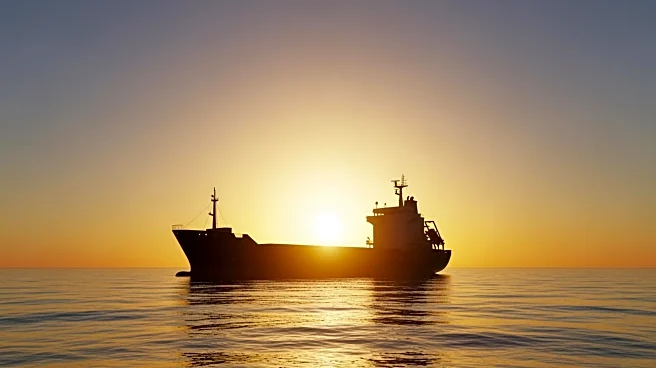Rapid Read • 7 min read
Höegh Autoliners has placed an order for ammonia-burning Everllence B&W ME-LGIA engines for its Aurora Class Pure Car and Truck Carriers (PCTCs). These vessels will be equipped with four 7S60ME-LGIA dual-fuel engines, marking a significant step in maritime decarbonization. The engines will be built by HD Hyundai Heavy Industries Co. Ltd. in South Korea and are set to be installed in an undisclosed Asian shipyard. The Aurora Class vessels are the first in the PCTC segment to receive DNV's ammonia-ready and methanol-ready notations, positioning them as pioneers in zero-carbon ammonia propulsion.
AD
This development is crucial for the shipping industry as it represents a shift towards cleaner propulsion technologies. Ammonia is considered one of the three major alternative fuels, alongside methanol and methane, that could significantly reduce emissions in maritime transport. Höegh Autoliners' initiative aligns with global efforts to achieve zero-emission shipping by 2027, setting a new standard for sustainable deep-sea transportation. The successful implementation of ammonia engines could encourage other shipping companies to adopt similar technologies, accelerating the industry's transition to greener practices.
The Aurora Class vessels are expected to be operational with zero-carbon fuels by 2027. Höegh Autoliners and Everllence will continue to collaborate on developing and testing ammonia engines, with plans for demonstration projects by the end of 2026. The industry will closely monitor these developments, as they could pave the way for broader adoption of ammonia propulsion in commercial shipping.
The adoption of ammonia engines raises questions about the safety and handling of ammonia, given its risk profile. The industry must address these concerns through rigorous safety protocols and training. Additionally, the shift to alternative fuels may impact global fuel markets and supply chains, necessitating adjustments in infrastructure and logistics.
AD
More Stories You Might Enjoy










